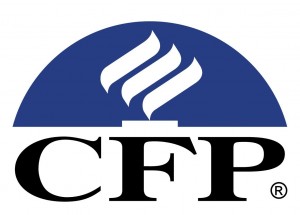The landscape has sharply changed for Certified Financial Planners (CFP’s). Recently President Barack Obama endorsed stricter standards for those who recommend retirement-investment accounts. The proposed new rules would require advisers to put  their clients’ interests ahead of personal gain. The proposals highlight the critical ethics issues facing certified financial planners.
their clients’ interests ahead of personal gain. The proposals highlight the critical ethics issues facing certified financial planners.
The proposed rules, drafted by the Labor Department are expected to chip away at lucrative sources of income for brokers. Many complain that they already operate under strict rules and therefore are not necessary. The impact of these new rules would potentially change how financial professionals are paid.
Since the passage of the Sarbanes-Oxley Act of 2002, there is greater transparency in financial information and the way that it is conveyed. This has translated into an expanded concept of always putting the interests of the client first.
The critical ethical issues center on the established concept of “Fiduciary.” The fiduciary in this case, the CFP must hold an ethical relationship of trust between himself/herself and the client. It is saying that if I am a Certified Financial Planner and you have entrusted me with your money, then I am responsible for making the best decisions on your behalf. While this would seem a given, it was a much grayer area than in the past.
At one point, the language governing the laws of the CFP read that CFP’s handled a client’s hard-earned money using the CFP’s “reasonable and prudent judgement.” It meant that trades could be made, decisions could be made without always consulting the client or necessarily having the client’s best interests in mind. For example, a security might be recommended that may have had inadequate research or it may not have been disclosed that the company for which the CFP worked had an interest in, or represented the security. In today’s ethical climate, the certified financial planner must always act as a true fiduciary, meaning that the interest of the CFP must always be subordinate to the needs of the client. It is a higher legal standard.
Higher legal standards and ethical obligations
One of the first ethical considerations is to fully understand the needs and objectives of your client. Again, this sounds like a given, but it was not always the case. The client, and the ability of the client to gain income, security and financial stability comes ahead of the need of the CFP to make money. This may be a dilemma for those wanting to go into the profession, but it doesn’t necessarily have to be the case. There is room for the CFP to derive an income at the same time understanding that as a fiduciary, the interests of the client comes first.
This leads to another ethical dilemma: the matter of fees. The CFP traditionally earns money from a client in one of two ways: fee-based or commission-based. For the long-term, the CFP and client must determine the best structure. This leads to the realization of how the portfolio will be handled. Does the planner foresee a logical increase in trades? Is the amount of money under the CFPs supervision a larger sum or a smaller sum? Will the growth desired be aggressive and demand a lot of attention, or be slow, steady and increase in a very conservative manner? This brings along with it a greater transparency than in the past where trades could be more frequent and not always with the knowledge of the client.
Another ethical consideration is the dispensing of advice, for it entails the foundational relationship between client and planner. Is your advice sales advice or is it based on a solid fiduciary footing? Sales advice can sometimes be presented as a fear-based consideration. Is the client being presented with a solid and objective opportunity to realize the growth of the portfolio within the ethical grounds of the agreements you have made with your client? Or is the advice based on pushing a client to making a decision as a function of an investment you wish to “push?” Is the investment being presented as an opportunity or as something that must be done on an immediate basis, just because of what could happen or might happen or simply because more money needs to be generated from the portfolio?
The myths of self-sacrifice
It is easy to say, “Everything I am doing, I am doing for the good of my clients.” It goes without saying that this should be the case. To fully embrace this in an ethical sense, is also to say, “My interests completely align with your interests.” This standard is between you and the client.
What I mean by this, is to say that it while it might be very admirable that your firm donates money to a home for the needy or supports a local animal shelter, this is a corporate decision, not an ethical contract between you and your client. The sacrifice of a corporation is, in many ways, cosmetic though worthy. What is meaningful is your advocating in all ways for your client.
These ethical issues are difficult to navigate, and I have just presented a few of many issues. We routinely consult to certified financial planning and accounting firms where we conduct real case scenarios and considerations. These seminars are well worth your time in the current financial environment.
A Practical Example: You decide is it Ethical?
My mother and father-in-law were frugal people. They believed in saving and providing for themselves and their family. Not prone to extravagance they invested wisely. For a number of years they focused their investments in stock (they invested in much more than that) in companies that represented absolute needs and that paid (as a percentage) high dividends. Utilities and certain banks were their investment of choice, and while they were younger they participated in dividend reinvestment.
When my father-in-law passed away, my mother-in-law continued the tradition leaving in place the substantial stock accumulation they had created. And the CFP she worked with recognized the wisdom of their choices (made before he came on board) and left it alone to grow. But, alas, as we all will, he died, leaving my mother-in-law to find a new investment adviser as she matured into her ’80’s. She found a new CFP.
Her health declined and the need to reinvest diminished as it became apparent that she needed the income their investments produced. As we (her family) began to look at her accumulations and the source of recurring income we notices something that caused us some concern. The new CFP liquidated approximately 1/3 of her portfolio reinvesting those proceeds into a variety of mutual funds which paid 2/3’s less in dividends.
Looking back we determined that even during the recession the original stocks had retained much of their original value and the dividends had remained constant. So we asked, why the liquidation? Diversification! “We needed to diversify you mother-in-law’s portfolio.” Hum…why? Her health was declining and one would logically assume that she might need income to cover the costs of care. So if the original portfolio consisted of stable high dividend paying stocks, why would, in the interest of diversification, you reduce her income and invest in mutual funds that included a Euro/Asian fund?
Questions: Was the portfolio really in need of diversification? Was it in the best interest of the CFP to sell old assets and rebuy new ones since a commission was generated on both? The new portfolio was, like the old, established as a dividend reinvestment portfolio, was that wise considering her age, declining health and natural income needs? Why didn’t the CFP discuss those practical issues and put together a plan that would better meet her needs? So many questions have arisen from this very personal experience, that it raises awareness that ethics and ethical action is a potential challenge when those actions and the driver of income are in conflict. What do you think?
Your Comments are Welcome!


